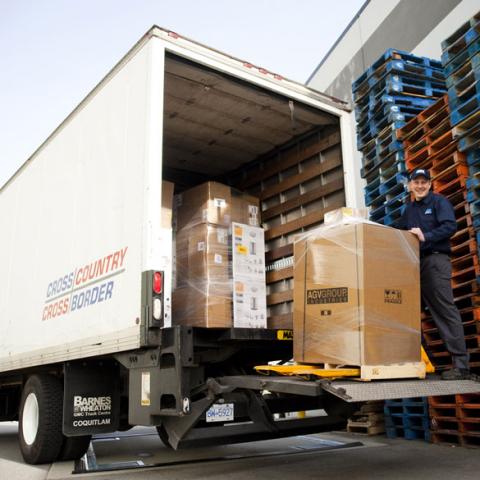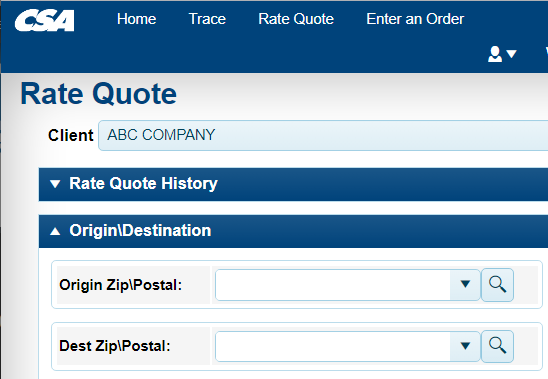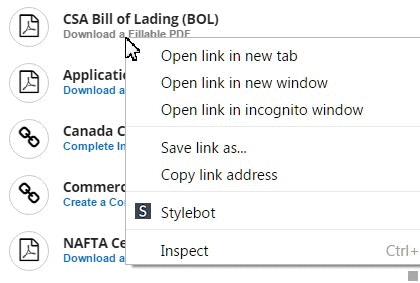Shipping Delays 101: How to Handle a Late Delivery the Right Way
Delay in delivery is the bane of many businesses, and nothing is worse than having to deal with clients screaming, "why is my package delayed!"
So, what's a company supposed to do when on-time deliveries aren't always under its control?
After all, neglecting your customers' worries when they inquire about a delayed package only worsens the situation.
Today, we'll cover the most common reasons for late delivery and the steps you should take to ensure you continue to have satisfied customers.
How Late Delivery Can Affect Businesses
Delivering the right items to the correct shoppers on time and in good condition is crucial for the success of your business.
Delivery errors, delays, and omissions can significantly negatively impact customer satisfaction, company image, and cash flow.
The impact of a late delivery pervades through multiple layers of a company's operations. Here are a few areas that are affected by a late shipment:
Increasing the Cost of Penalties
Customers today demand either a reduction or a reimbursement of the shipping expenses (shipping costs) following a late delivery, and retailers face higher logistical costs.
Increased Operational Costs
Retailers incur additional costs for redelivery for each missed delivery, including:
- Spending more on gasoline
- Loss of cargo space on the delivery truck
- Increased labor costs
- Increase in customer service due to complaint call volume
Retention Loss
Churn is a huge component of delivery. Late or missing deliveries significantly impact a company's ability to retain consumers since customers who have a bad delivery experience are far more likely to go elsewhere. So, if a shipment isn't received, it may be the customer's last transaction.
Negative Online Reviews & Ratings
In addition to economic issues, missed delivery can harm the retailer's brand reputation. Losing repeat business and failing to draw in new ones are consequences of people having a poor image of your brand.
Customers who shop online quickly share their thoughts and opinions about a brand or retailer by voting or rating it with their clicks.
Increase in Cost of Acquisition
If you have a loyal client base, they are more likely to buy more from you, and more likely to spread the word about your brand. In contrast, people stop buying with a business if deliveries are late or missing altogether. If your company has experienced a series of late deliveries, you can expect a rise in your Customer Acquisition Cost (CAC).
Increased Greenhouse Emissions
When deliveries are missed, more greenhouse gas emissions are released during redelivery. When a shipment isn't delivered on the first try, the carbon emissions from subsequent redelivery attempts or the client traveling to the depot to pick up the box are increased.
10 Common Reasons for Delays in Delivery of Goods
Are your packages delayed? Due to many factors, a hiccup might occur at any point in the fulfillment chain. Here are the most common reasons for a delay in the delivery of goods:
1. Outdated Technology
Delivery companies face a serious difficulty when they can't use new technology or access capabilities that might reduce shipment delays because of outdated software or hardware.
As a result of cloud-based software and correct hardware, couriers, 3PLs, logistics, and transportation organizations may benefit from real-time data and connectivity.
2. Incomplete or Inaccurate Contact Information
Unless the client gives all the essential information, a repeat delivery attempt will not be undertaken if the courier driver fails to deliver the products to an address that is difficult to find. As a result, the original projected delivery time gets pushed back.
3. Global Events
If supply chains are disrupted, it can significantly impact shipping. We've already seen this phenomenon in action in the present worldwide epidemic. Since the outbreak of coronaviruses, shipments have been delayed across the world.
4. Package is Marked as Undeliverable
The shipments are scanned as soon as they arrive at the first depot. Parcels suspected of containing banned products (lithium batteries, for example) are tagged undeliverable by courier company staff.
5. Poorly Organized Warehouse
The time it takes to receive an order and deliver it to your shipping carrier is increased by an unorganized warehouse, which reduces the duration they have to deliver on time. Manual order processing, unclassified inventory, understaffed personnel, and inefficient warehouse layouts are significant sources of delayed deliveries.
6. Recipient Isn't Home
There are many packages that couriers have to deliver and collect every day. A delivery attempt is judged failed if the intended receiver is not present at the specified delivery address. This address can't be returned on the same day by the courier in most circumstances, as it would cause delays in the delivery of additional shipments.
7. Holidays
As with every commercial industry, the holidays are a hectic time of year. A massive rise in cargo volumes will rapidly surpass couriers' capacity, especially if they lack an effective delivery network or system.
8. Backorders and Overselling
Due to manual inventory management and synchronizing stock throughout sales channels, late deliveries are sometimes the result of overselling items if you fall behind on your manual operations. If your supplier doesn't have enough items in stock, your deliveries will likely be delayed until they do.
Backordering an item that isn't in stock but is on its way might lead to additional setbacks. Delivery delays are typical when a backordered item is awaiting a shipment, which doesn't always arrive on time.
9. Vehicle Issues
A vehicle will inevitably break down at some point and this can lead to your customer seeing a carrier delay - operational/capacity related. However, technology can help even in the most severe of situations. A web-based tracking system enables courier businesses to find and deploy the nearest driver to the vehicle having difficulty and deliver all essential packages to the final destination on time and in priority order.
10. Traffic
Every city will be inundated with traffic. It is becoming more typical to hear about people getting stuck in traffic because of construction, accidents, extensive blockages, and detours.
Traffic and congestion aren't limited to city streets. International shipment delays are often caused by airport congestion and inclement weather. If you're shipping internationally, ensure your customs documentation for foreign shipments is complete and accurate.
Courier drivers can use route optimization software. It can determine the quickest path and update it in real-time to avoid occurrences that cause delays.
How to Avoid a Late Delivery
To ensure the health and viability of your business, here are a few steps you can do to avoid a late delivery:
Improve Your Order Processing Procedure
If your clients are asking you, “what does delayed not carrier mean?” it could be caused by your ordering process. Reduce the time it takes to process orders so that shipping companies have enough time to meet delivery dates. You should use order management software to download orders, create shipping labels, and produce real-time pick lists.
Use a Reputable Shipping Provider
Depending on when your purchases are ready for delivery, you'll want to use a shipping provider that can accommodate that. Instead of promoting unrealistic delivery times, choose a shipping method that matches your promises. If you choose a two-day delivery service and spend a whole day picking and packing products, your orders will probably arrive in three days, not two.
Track Your Orders
If an item will arrive late, order tracking can notify you. In some instances, you may be able to undertake quick damage control, such as scheduling a replacement to arrive on time.
Use a Transportation Company with Regional Expertise
You want to use a shipping company that can handle anything from pallets to truckloads and is familiar with your business's region.
What to Do When There's a Delay in Delivery
Shipping delays are unavoidable, even if you've done everything to improve your company procedures and shipping operations.
The key is to respond to these delays to protect your brand's image. Here are some suggestions for dealing with delays in shipment.
Be Open With Your Clients
To deal with delays, the first thing you should do is call your clients and explain why their purchases have been delayed.
Offer Free Delivery
Free delivery might help lessen your consumers' expectations for quicker shipping.
Cooperate with Local Suppliers
Suppliers having warehouses in your target markets might decrease delivery delays by fulfilling your orders from the nearest facilities.
Shipping Solutions Tailored to Your Needs
Do you have questions about how to handle a late delivery? Our knowledgeable customer service specialists will be glad to answer your questions.
CSA Transportation has kept supply chains moving since 1986 and has the experience to meet your business’s shipping needs. Contact us if you need domestic transportation or are looking for USA to Canada shipping solutions. We’re here to help you every step of the way.





